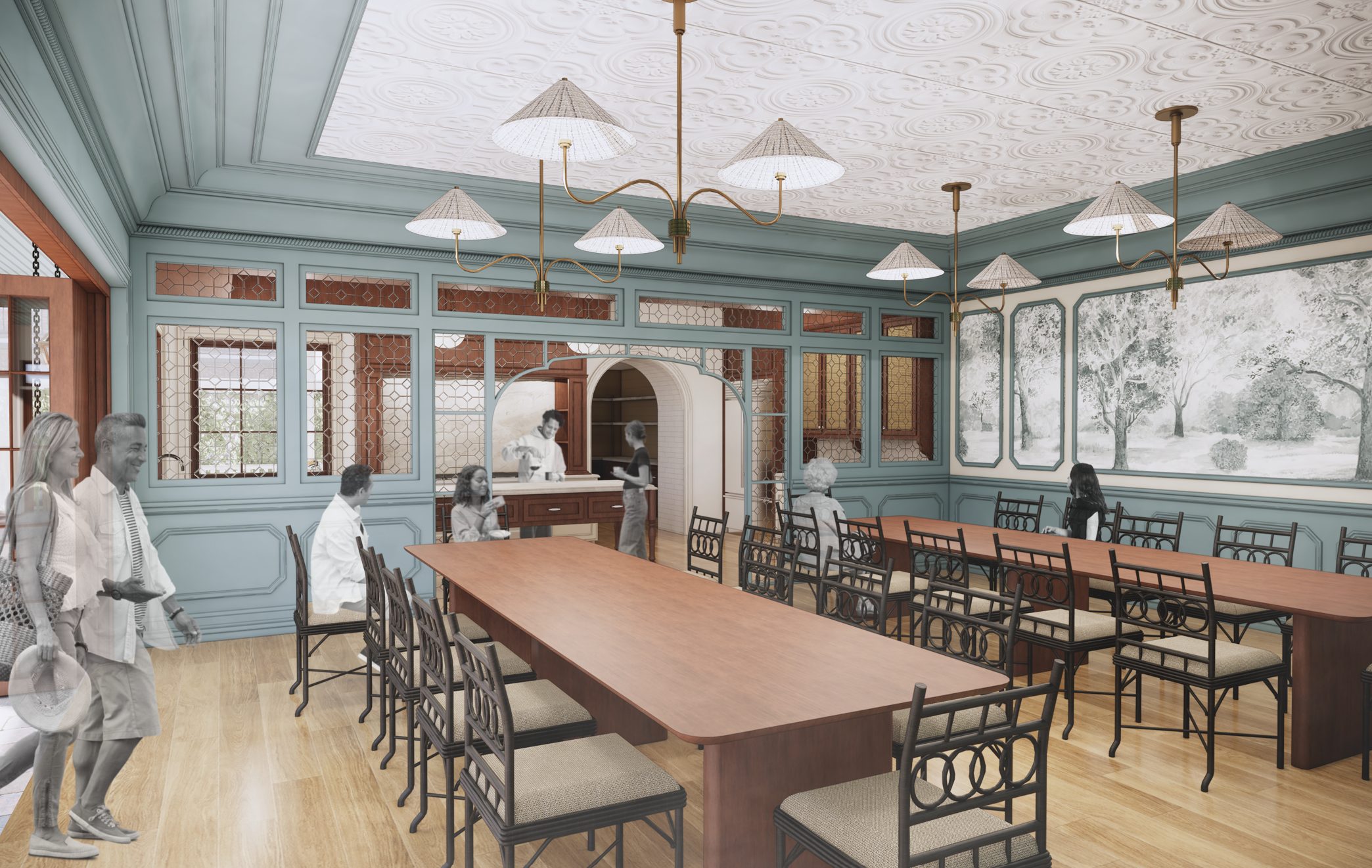Thesis Projects
Thesis Projects by Year
From Overcrowding to Opportunity: Designing Sustainable Hospitality through Slow Tourism
As global travel experiences a resurgence, popular destinations increasingly face challenges from overcrowding, affecting both local communities and natural environments. This project proposes a sustainable hospitality model inspired by slow tourism, emphasizing thoughtful, sensory-rich experiences that reconnect guests to the landscape and local life. Northwestern Stables exemplifies this approach by prioritizing community-driven activities, environmentally conscious practices, and meaningful interactions. Through collaborative partnerships with local organizations and farms, the model fosters authentic connections and promotes responsible travel choices. The integration of wellness, local agriculture, and immersive workshops creates unique opportunities for visitors to pause, reflect, and engage more intentionally with their surroundings. By gently dispersing visitors into less-explored areas and involving community stakeholders directly in tourism initiatives, this approach transforms over-tourism’s challenges into opportunities. Ultimately, the project aims to benefit both guests and residents, enhancing quality of life, preserving local identity, and promoting environmental stewardship through conscious design.
Belonging in Nature: A Sustainable Glamping Retreat
As global travel experiences a resurgence, popular destinations increasingly face challenges from overcrowding, affecting both local communities and natural environments. This project proposes a sustainable hospitality model inspired by slow tourism, emphasizing thoughtful, sensory-rich experiences that reconnect guests to the landscape and local life. Northwestern Stables exemplifies this approach by prioritizing community-driven activities, environmentally conscious practices, and meaningful interactions. Through collaborative partnerships with local organizations and farms, the model fosters authentic connections and promotes responsible travel choices. The integration of wellness, local agriculture, and immersive workshops creates unique opportunities for visitors to pause, reflect, and engage more intentionally with their surroundings. By gently dispersing visitors into less-explored areas and involving community stakeholders directly in tourism initiatives, this approach transforms over-tourism’s challenges into opportunities. Ultimately, the project aims to benefit both guests and residents, enhancing quality of life, preserving local identity, and promoting environmental stewardship through conscious design.
Unpacking Tourism: Designing through a locals-first lens
Tourism in cities has increased worldwide, leading to cultural commodification and the displacement of local residents due to increased living costs and a saturation of short-term rentals. How can cities cultivate spaces that serve their residents while also allowing travelers to visit more mindfully? Drawing inspiration from Albergo Diffuso, an Italian concept which disperses hotel accommodations and programming throughout a small village, this project aims to create a new model for hospitality and urban planning. Using Charleston, South Carolina, as a prototype, tourists are integrated into the city's fabric through homestays with locals, keeping long term residents, now also homeowners, within city limits. This hospitality model integrates local businesses and accommodations within a one-block radius, so locals can stay local, and tourists can experience a curated authentic visit. Through this approach, my thesis presents a scalable framework for cities facing similar challenges, ultimately reimagining tourism to actively support locals rather than displacing them.
Beyond the Waves: Exploring Sustainable Futures through Floating Interior Architecture in the Face of Rising Sea Levels
Facing the challenge of rising sea levels due to global warming, I aim to explore the relationship between floating architecture and its interiors. My design approach is to create an entertaining social hotspot that invites both locals and tourists to enjoy Copenhagen's water culture. The concept, "Iceberg Haven," provides experiences at different elevations of the sea level, emphasizing the urgency of addressing this environmental issue. This floating architecture adapts to changing conditions and serves an educational purpose, highlighting the impact of global warming. My thesis delves into these adaptations and the potential for floating structures to educate and engage the public
Tourism and Sustainability
‘Sustainable Tourism’ is a concept that has been in practice for fifty years, yet tourism remains unsustainable. Tourism in its own right cannot be sustainable, instead it must be reconceptualized as a tool to improve the well-being of host communities and sustain destination regions. This thesis explores how we, as designers, can harness the possibilities of tourism to create true and lasting sustainability.
Self-Sustaining Urban Oasis
The definition of Oasis is “a fertile or green area in an arid region (such as a desert).” Translating the concept of an Oasis into a built urban setting, means creating a space in the center of a developed city where people can unwind, get away, restore themselves and feel at peace with nature, while being environmentally responsible.
Composing Experiences within In-Between Places
Urbanization requires adaptation to population density and embrace of associated housing typologies, including vertical living that is cost-efficient, sustainable, resilient, and inclusive.







